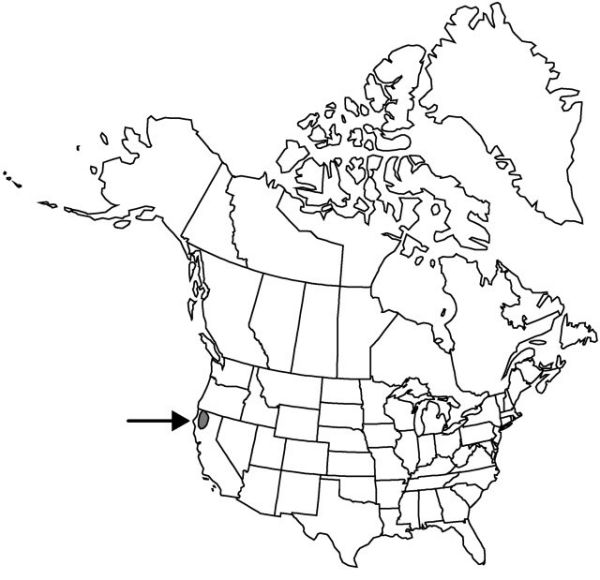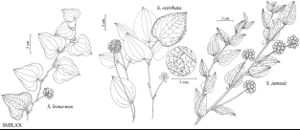Smilax jamesii
Brittonia 31: 416, fig. 1. 1979.
Herbs; rhizomes brown or black, zigzag. Stems annual, climbing, branched, 2–3 m, herbaceous, glabrous; prickles absent. Leaves evenly distributed, proximalmost reduced to bracts; petiole shorter than blade; tendrils numerous, long, functional; blade dark green, triangular, ovate, or slightly hastate, 2.5–8.5 × 4–7.5 cm, membranous, glabrous and glaucous abaxially, base truncate, cordate, or hastate, lobes rounded; margins entire; apex cuspidate. Umbels axillary to leaves, staminate to 20-flowered, pistillate few–40-flowered, moderately dense, subspherical; peduncle of staminate umbel ± equaling subtending leaf, pistillate to 13.5 cm. Flowers: perianth light green; tepals 1.5–2 mm; anthers slightly shorter than to equaling filaments; ovules (1–) 2 per locule; pedicel thin, ca. 1.5 cm. Berries blue, ovoid, 6–8 mm.
Phenology: Flowering May–Jul.
Habitat: Alder thickets, lake and stream sides, bracken fern slopes
Elevation: 1200–2500 m
Distribution

Calif.
Discussion
Of conservation concern.
Smilax jamesii is the only herbaceous species of Smilax known to occur in western North America. It is found in the Klamath Mountains.
Selected References
None.
